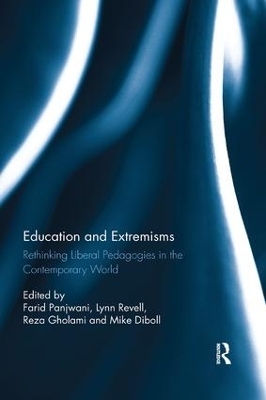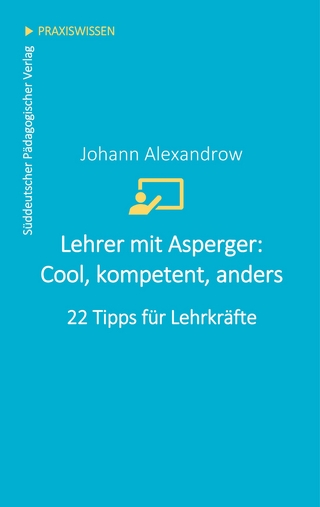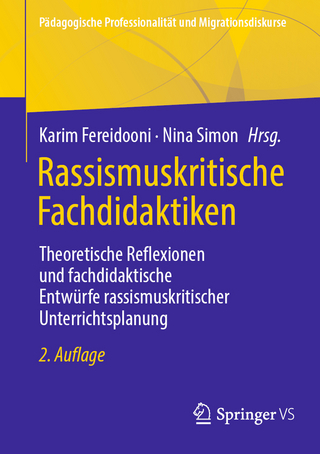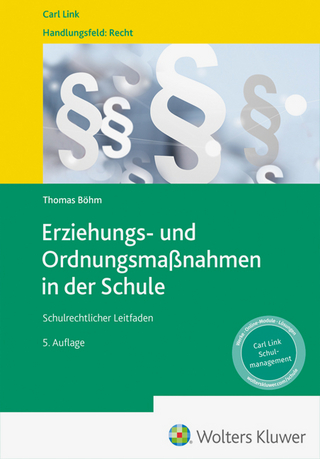
Education and Extremisms
Routledge (Verlag)
978-0-367-19871-8 (ISBN)
Beginning with a detailed discussion of the complicated and contested nature of different forms of extremism, including extremism of both a religious and secular nature, the authors show that common assumptions in contemporary discourses on education and extremism are problematic. Chapters in the book provide a careful selection of pertinent and topical case studies, policy analysis and insightful critique of extremist discourses. Taken together, the chapters in the book make a powerful case for re-engaging with liberal education in order to foster values of individual and social enrichment, intellectual freedom, criticality, open-mindedness, flexibility and reflection as antidotes to extremist ideologies. Recognising recent criticisms of liberalism and liberal education, the authors argue for a new understanding of liberal education that is suitable for multicultural societies in a rapidly globalising world.
This book is essential reading for academics, researchers and postgraduate students with an interest in religion, citizenship education, liberalism, secularism, counter-terrorism, social policy, Muslim education, youth studies and extremism. It is also relevant to teacher educators, teachers and policymakers.
Farid Panjwani is a Senior Lecturer and founding Director at the Centre for Research and Evaluation in Muslim Education (CREME) at the UCL Institute of Education, University College London, UK. Lynn Revell is Reader in Religion and Education at Canterbury Christ Church University, UK. Reza Gholami is Lecturer in Sociology of Education in the School of Social Science and Public Policy at Keele University, UK. Mike Diboll is Honorary Research Associate at UCL Institute of Education, University College London, UK.
Foreword Acknowledgements List of Contributors Introduction Section 1. State Policies and Educational Practices 1. Challenging Extremism and Promoting Cohesion: National Policies and Local Implementation 2. Education, Freedom of Belief and Countering Terrorism: The Minefield between UK Policy and School Implementation 3. Education and Disengagement: Extremism and the Perception of Muslim Students 4. Street Children, Integrated Education and Violence in Northern Nigeria 5. Misplaced Utopia: Education and Extremism - the Case of Pakistan Section 2. Perspectives on Extremism 6. Challenging the Legitimacy of Extremism: Critique through Education in the Work of Khaled Abou El Fadl 7. Teaching Early Muslim History: Facilitating Criticality through a Source-based Approach 8. ‘Mine Own Familiar Friend...’ Education and Extremism, within Historic Culture 9. Gender Equality in Education, Context and Criticality: Student Teacher Engagements in Three Northern Nigerian States 10. The Balanced Nation: Addressing the Challenges of Islamist and Far-Right Extremism in the Classroom 11. Multiple Ontologies of Extremism: ISISes in Education, a Case Study Section 3. Reconceptualising Liberal Education and Criticality 12. Negotiating Difference in Educatoin: Extremism, Political Agency and an Ethics of Care 13. Resilience and Soft Power: an Analysis of UK Government and International Guidelines and Resources to Address Radicalisation and Extremism in Education. 14. Promoting Tolerance to Schools in a Time of Extremism 15. Nurturing Critical Thinking across Self-Other Dichotomies 16. Cosmopolitanism as Transformative Experience: towards a New Social Ethic Epilogue
| Erscheinungsdatum | 14.01.2019 |
|---|---|
| Zusatzinfo | 6 Tables, black and white |
| Verlagsort | London |
| Sprache | englisch |
| Maße | 156 x 234 mm |
| Gewicht | 453 g |
| Themenwelt | Geisteswissenschaften ► Religion / Theologie |
| Sozialwissenschaften ► Pädagogik ► Bildungstheorie | |
| ISBN-10 | 0-367-19871-1 / 0367198711 |
| ISBN-13 | 978-0-367-19871-8 / 9780367198718 |
| Zustand | Neuware |
| Haben Sie eine Frage zum Produkt? |
aus dem Bereich


